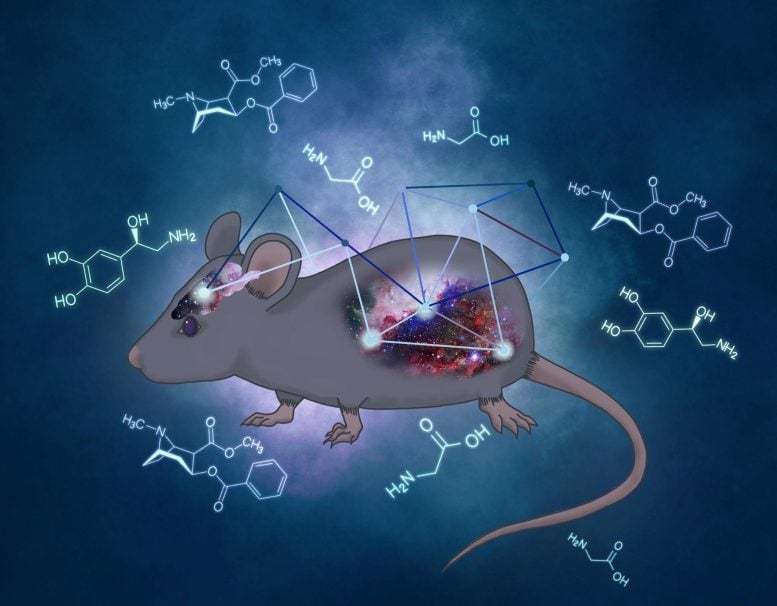
Common gut bacteria can enhance the effects of cocaine in mice, according to a report published recently in the journal Cell Host & Microbe.
This study demonstrates how cocaine usage promotes the growth of gut bacteria, which in turn consume glycine, a chemical that contributes to normal brain function. As levels of glycine become depleted, mice exhibit a stronger response to cocaine with behavior abnormalities, such as substantially increasing drug-induced locomotion and seeking behaviors.
In addition, by supplementing glycine back systemically or using a genetically modified bacteria that cannot use glycine, the response of the mice to cocaine falls back to normal levels. This demonstrates that this simple amino acid can act as an addiction-like behavior mediator in animal models.
“I was interested in the gut-brain axis, and I found it very new and exciting,” says first author Santiago Cuesta a neuroscientist at the University of Wisconsin School of Medicine and Public Health.
Mechanism of Bacterial Growth in Response to Cocaine
Cuesta and colleagues found that when cocaine enters the gut of the mice, it triggers the activation of the QseC protein that supports the growth of γ-proteobacteria, such as E. coli. Fueled by glycine, these bacteria outcompete the normal gut bacteria that already exist in our digestive tracks, taking up most of the space and resources.
“The gut bacteria are consuming all of the glycine and the levels are decreasing systemically and in the brain,” says senior author Vanessa Sperandio, a microbiologist from the University of Wisconsin School of Medicine and Public Health. “It seems changing glycine overall is impacting the glutamatergic synapses that make the animals more prone to develop addiction.”
“Usually, for neuroscience behaviors, people are not thinking about controlling the microbiota, and microbiota studies usually don’t measure behaviors, but here we show they’re connected” says Cuesta. “Our microbiome can actually modulate psychiatric or brain-related behaviors.”
“I think the bridging of these communities is what’s going to move the field forward, advancing beyond correlations towards causations for the different types of psychiatric disorders,” says Sperandio.
Reference: “Gut colonization by Proteobacteria alters host metabolism and modulates cocaine neurobehavioral responses” by Santiago Cuesta, Paula Burdisso, Amir Segev, Saïd Kourrich and Vanessa Sperandio, 1 November 2022, Cell Host & Microbe.
DOI: 10.1016/j.chom.2022.09.014
Financial support was provided by the National Institutes of Health (NIH).
Never miss a breakthrough: Join the SciTechDaily newsletter.